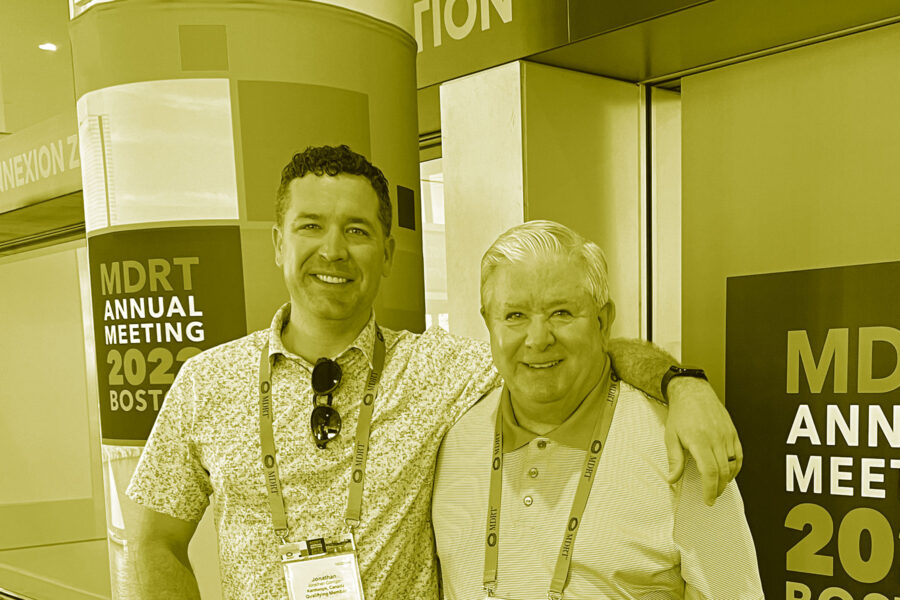Talking about estate planning can be as exciting as watching paint dry. But it doesn’t have to be all about dying. Here are four reasons why you should consider estate planning.
- You want to pay less income tax today. Each time you withdraw from your retirement plan, you pay tax. There are a couple of ways to potentially reduce the tax bite. First, fill up the “lower tax brackets.” If you postpone, the tax bracket may be higher. This is evident in RRSPs and RRIFs in Canada. A withdrawal at 22% is better than a lump sum at 40% plus.
- You want to be in control of your retirement money. Therefore, make sure you have the documents that give you control. These would include a will, power of attorney, and possibly a health care directive.
- You may want to rid yourself of “time-consuming” assets, such as rental real estate, small businesses, or corporations. Typically, these assets are never sold because the owners don’t want to pay the capital gains tax. The tax has to be paid, but there are ways to defer it. Discuss strategies with your financial or tax advisor.
- You want to reduce liability. Retirees sometimes confuse ownership with control. You can give up ownership yet maintain control. For example, you can transfer assets into a trust. You can transfer assets and invest them into an insurance company and have different owners or annuitants and beneficiaries. Segregated funds are used in estate planning to name children as successor annuitants or beneficiaries while maintaining control over the investment today.
Strategies like these can work well with second marriages. Notice that the payoff is usually for Mom and Dad and not necessarily for the children. If you want more from your money today, then consider learning how an estate plan benefits you and your family.
Will a Large Inheritance cause Problems?
At a conference, I listened to a few interesting stories by Michael Alexander. As the author of the best-selling book How to Inherit Money: A Guide to Making Good Financial Decisions After Losing Someone You Love, Michael shared real-life examples, including his own, of people inheriting a lot of money. Over the next 30 years, baby boomers are expected to inherit close to 10 trillion dollars from their parents. As a financial professional, Michael asks, “What questions do you ask people during estate planning?”
He suggested asking, at the planning stage, whether a large sum of money will cause family problems. If you bequeath, without any direction, a large lump sum to a child who is not responsible with money, serious problems can arise for your family. Instead of leaving a legacy, you leave a problem. If you have a child that is disabled or handicapped, will this change their situation? Think what your children would do if they suddenly came into hundreds of thousands of dollars today. What exactly would they do? Michael talked about people inheriting millions and going through it faster than you read this article. Bad investments, lending out money to friends and family, and other examples of irresponsibility are just a few of the many potential problems.
Michael also talked about investing a large inheritance. He suggested parking the money in a short-term account, such as a money market investment or GIC, for six months to one year.
Your life dramatically changes when you lose a loved one; turning around and making long-term decisions is difficult at an emotional time like this.
It’s also a good idea to discuss your estate plan with your children, without getting into specific figures, so they are aware of and understand your plan. That way, everyone can sleep at night knowing you intend to leave a legacy, not a problem.
Strategies for Eliminating Probate Fees
Sometimes there can be a long list of fees on your estate before your beneficiary gets the money–probate fees, debt repayment, administration expenses and funeral costs, income tax, and capital gains tax. How can you make it simpler? Consider the story of Paul in Victoria, who had an estate of almost a million dollars; but after all fees and expenses and two years, his only son received less than $500,000. Most of his money was in a RRIF and the estate was the beneficiary. He had capital gains tax, income tax, and probate fees. A few simple ideas could have saved a lot of time and expense.
First, proceeds from investments having named beneficiaries bypass probate, legal, and administration fees and are not a matter of public record. He could have named his son beneficiary on his RRIF and his investments, if they were with a life insurance company. The funds would have been paid out within two weeks of Paul’s death.
The estate fee in British Columbia, on the portion of Paul’s estate that is more than $50,001, is $14 per $1,000. Some simple ideas such as segregated funds, guaranteed investment funds, guaranteed investment accounts, and GICs through life insurance companies could have saved a lot of time and money. In order to simplify your estate, consider investments with life insurance companies where you can name beneficiaries. Ask your current advisors if they can recommend investments with insurance companies. If they cannot, you may not be looking at all of your available options.
To accumulate wealth, you must study and emulate those who have acquired it before you.
– Brian Tracy


